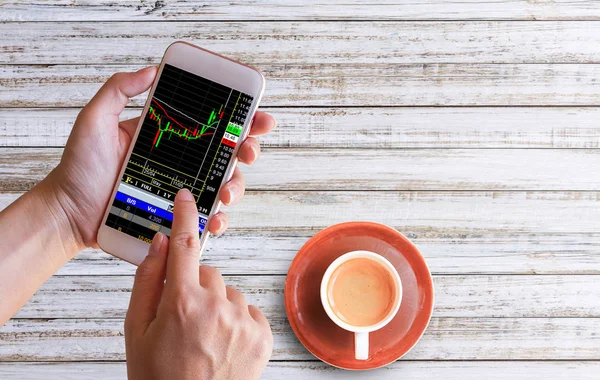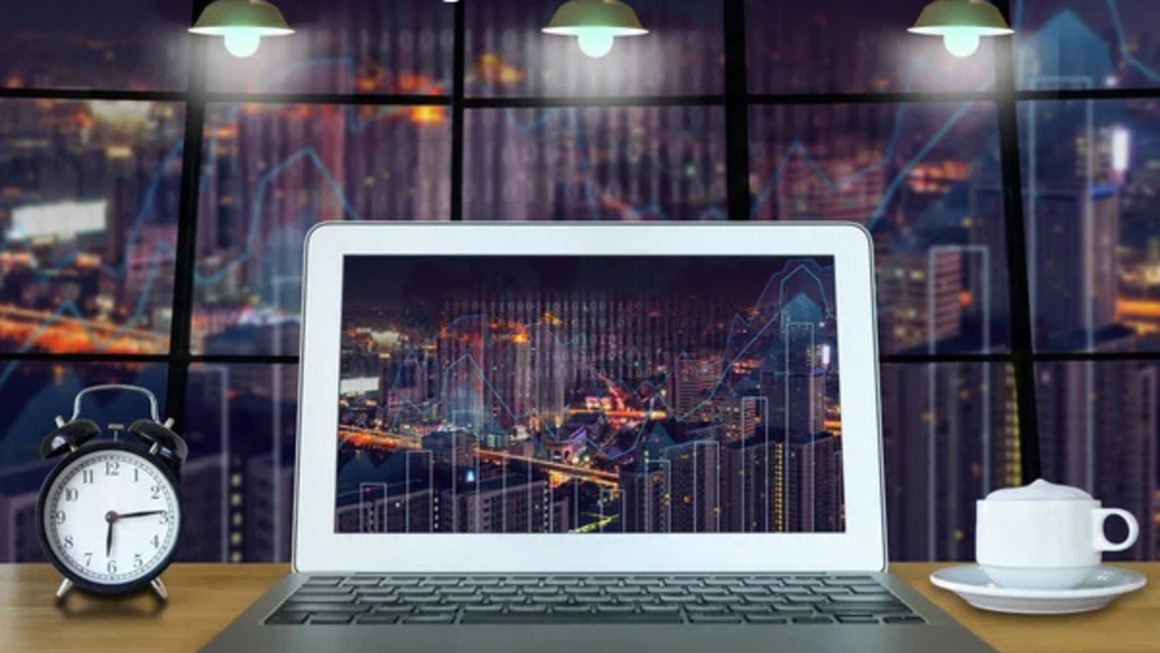Forex in Iran offers significant opportunities for profits, but it comes with its own set of challenges due to sanctions and limited access to international markets. This guide covers essential details about Forex trading in Iran, including the use of VPNs, methods of deposit and withdrawal, the importance of learning from the best traders, volatile assets to focus on, cryptocurrency trading in light of sanctions, and selecting reliable Forex brokers.
1. VPN Usage: Is It Necessary for Iranians?
Given the restrictions and sanctions on Iran, many Forex brokers and cryptocurrency exchanges block access to users from the country. To bypass these restrictions, Iranians must use a Virtual Private Network (VPN) that masks their IP address and gives them access to international trading platforms. A VPN helps ensure privacy and safety while trading, and it is a crucial tool for Iranians looking to trade Forex securely.
2. Depositing and Withdrawing Funds: Key Considerations
Depositing Funds: For Iranian traders, funding a Forex account can be complicated. Most Forex brokers do not accept direct payments from Iranian bank accounts due to international sanctions. To work around this, traders can use payment processors like PayPal or cryptocurrency transfers (Bitcoin, Ethereum, etc.). These methods are often more accessible and secure, making them popular among Iranian traders.
Withdrawing Funds: The withdrawal process is just as important to consider. Some brokers allow withdrawals via cryptocurrency wallets, while others provide options like bank transfers to international accounts. It’s crucial to verify withdrawal options beforehand and ensure they are suitable for Iranian traders.
3. Learning to Trade: Demo Accounts and Copy Trading
Starting with a demo account is vital for those new to Forex trading. A demo account offers virtual funds to practice and learn the trading process without risking real money. It allows traders to familiarize themselves with the platform, experiment with strategies, and understand market behavior.
Once comfortable with trading basics, copy trading becomes an excellent option. By using copy trading, you can mirror the trades of more experienced traders, allowing you to learn from their strategies and gain profits while minimizing risk. This is an excellent way to begin trading without making all the decisions independently.
4. Volatile Assets: Focus on High-Volatility Markets
To earn substantial profits in Forex, focusing on volatile assets is crucial. Volatility creates opportunities for larger price movements, which can result in higher profits. Cryptocurrencies, commodity currencies (like USD/JPY, EUR/USD), and emerging market currencies are known for their high volatility. However, volatility also comes with risks, so it’s important to have a clear risk management strategy.
5. Cryptocurrency Trading: Navigating Sanctions
Despite sanctions, cryptocurrency offers a potential avenue for Iranians to participate in global markets. Cryptocurrencies like Bitcoin, Ethereum, and stablecoins provide a decentralized way of trading without relying on traditional financial systems.
Choosing the Right Exchange: Iranians should choose cryptocurrency exchanges that allow users from sanctioned countries. Platforms like Binance and Kraken are often accessible to users from Iran, but it’s important to verify the exchange’s policy on Iranian users.
Buying Ready-Made Accounts: Some traders may opt to buy pre-registered accounts to bypass restrictions. However, this carries risks, including security and legal issues. It’s safer to create your own account through a reliable VPN and ensure that all your actions comply with the exchange’s terms of service.
Security: Always prioritize security when trading cryptocurrencies. Use two-factor authentication (2FA), store funds in hardware wallets, and be cautious of phishing scams.
Comparison of Top 10 Cryptocurrency Exchanges: Availability for Iranian Users and Average Price of Pre-Verified KYC Accounts
| Exchange | Availability for Iran | Average Price of KYC Account (Permitted Country) |
|---|---|---|
| Binance | Restricted | $200 – $500 (varies depending on the country) |
| Coinbase | Restricted | $250 – $600 (varies depending on the country) |
| Kraken | Restricted | $150 – $400 (varies depending on the country) |
| OKX | Restricted | $100 – $300 (varies depending on the country) |
| Bybit | Restricted | $100 – $350 (varies depending on the country) |
| KuCoin | Restricted | $150 – $400 (varies depending on the country) |
| Gate.io | Restricted | $100 – $300 (varies depending on the country) |
| Bitfinex | Restricted | $200 – $450 (varies depending on the country) |
| Gemini | Restricted | $300 – $600 (varies depending on the country) |
| Huobi | Restricted | $150 – $400 (varies depending on the country) |
Notes:
- Availability for Iran: Most major cryptocurrency exchanges restrict access for users in Iran due to international sanctions. A VPN and a valid KYC account from another country may allow access.
- KYC Account Prices: The prices for pre-verified KYC accounts with a permitted country can vary based on factors such as the exchange, country of verification, and the level of KYC verification. These are approximate ranges and may change.
Caution:
Purchasing pre-verified accounts may violate exchange terms of service and can lead to account suspension, loss of funds, or legal issues. Always consider legal risks and review the exchange’s terms before engaging in any such activities.
Here is the comparative table of Decentralized Exchanges (DEXs) across various blockchain networks including Ethereum (ETH), Cosmos (ATOM), Osmosis (OSMO), TRON, Binance Smart Chain (BNB), and Solana:
| Blockchain | DEX Exchange | Available for Iranian Users | Features |
|---|---|---|---|
| Ethereum (ETH) | Uniswap, SushiSwap | Yes | Large liquidity pools, widely used, supports ERC-20 tokens |
| Cosmos (ATOM) | Osmosis | Yes | Interoperability with various blockchains, low fees |
| Osmosis (OSMO) | Osmosis DEX | Yes | Focused on Cosmos ecosystem, high customization of liquidity pools |
| TRON | JustSwap | Yes | Fast transactions, low fees, supports TRC-20 tokens |
| Binance Smart Chain (BNB) | PancakeSwap | Yes | High liquidity, fast transactions, wide selection of BEP-20 tokens |
| Solana | Serum | Yes | Low fees, fast transactions, decentralized order book |
Notes:
- Availability for Iranian Users: All listed DEX exchanges are accessible globally, including for Iranian users. However, depending on the platform, users might need to use a VPN or a decentralized wallet for privacy.
- Features: These DEX platforms operate on different blockchains, with each offering unique features such as high transaction speed, low fees, and access to various token standards (ERC-20, TRC-20, BEP-20, etc.).
These DEXs provide a decentralized, secure way to trade cryptocurrencies without relying on centralized exchanges, and they are especially useful for users in countries with restrictions like Iran.
6. Choosing Reliable Forex Brokers: Trustworthiness is Key

The Forex broker you choose is crucial to your success in the market. For Iranian traders, the key factors to look for include:
- Reliability: Ensure the broker is regulated by reputable authorities, which provides a sense of security and fairness.
- Iranian Support: Look for brokers that offer customer support in Persian or provide Iranian-friendly communication channels like WhatsApp or Telegram.
- Withdrawal Options: As mentioned earlier, check if the broker offers withdrawal options suitable for Iranians, like cryptocurrencies or international transfers.
Below is a comparative table of some Forex brokers that are accessible to Iranians:
| Broker Name | Regulatory Authority | Payment Methods | Support Languages | Notable Features |
|---|---|---|---|---|
| Investizo | CySEC, ASIC | Bitcoin, Skrill | Persian, English | Low spreads, fast execution |
| Exness | FCA, CySEC | Bitcoin, Skrill | Persian, English | Reliable support, multiple assets |
| OctaFX | IFSC | Bitcoin, Neteller | Persian, English | Popular among Iranian traders |
| FBS | IFSC | Bitcoin, Perfect Money | Persian, English | User-friendly platform |
| XM | CySEC, ASIC | Bitcoin, Skrill | Persian, English | Low spreads, fast execution |
FAQ
1. Do I need to use a VPN to trade Forex?
Yes, using a VPN is recommended for Iranians to bypass sanctions and access international Forex platforms securely.
2. How can I deposit funds into my Forex account?
You can use cryptocurrency (Bitcoin, Ethereum) or third-party payment systems like PayPal to deposit funds into your Forex account.
3. What are the best assets to trade in Forex?
High-volatility assets such as cryptocurrencies, commodity currencies (USD/JPY, EUR/USD), and emerging market currencies offer significant trading opportunities.
4. Which Forex brokers are reliable for Iranian traders?
Investizo, OctaFX, FBS, and XM are some of the brokers that offer support to Iranian traders and accept cryptocurrency deposits.
5. How can I trade cryptocurrency in Iran despite sanctions?
You can use platforms like Binance and Kraken for crypto trading. Ensure you use a VPN to access these exchanges securely.
By following these steps and understanding the unique challenges and opportunities in Forex trading for Iranians, you can make well-informed decisions and trade successfully.



